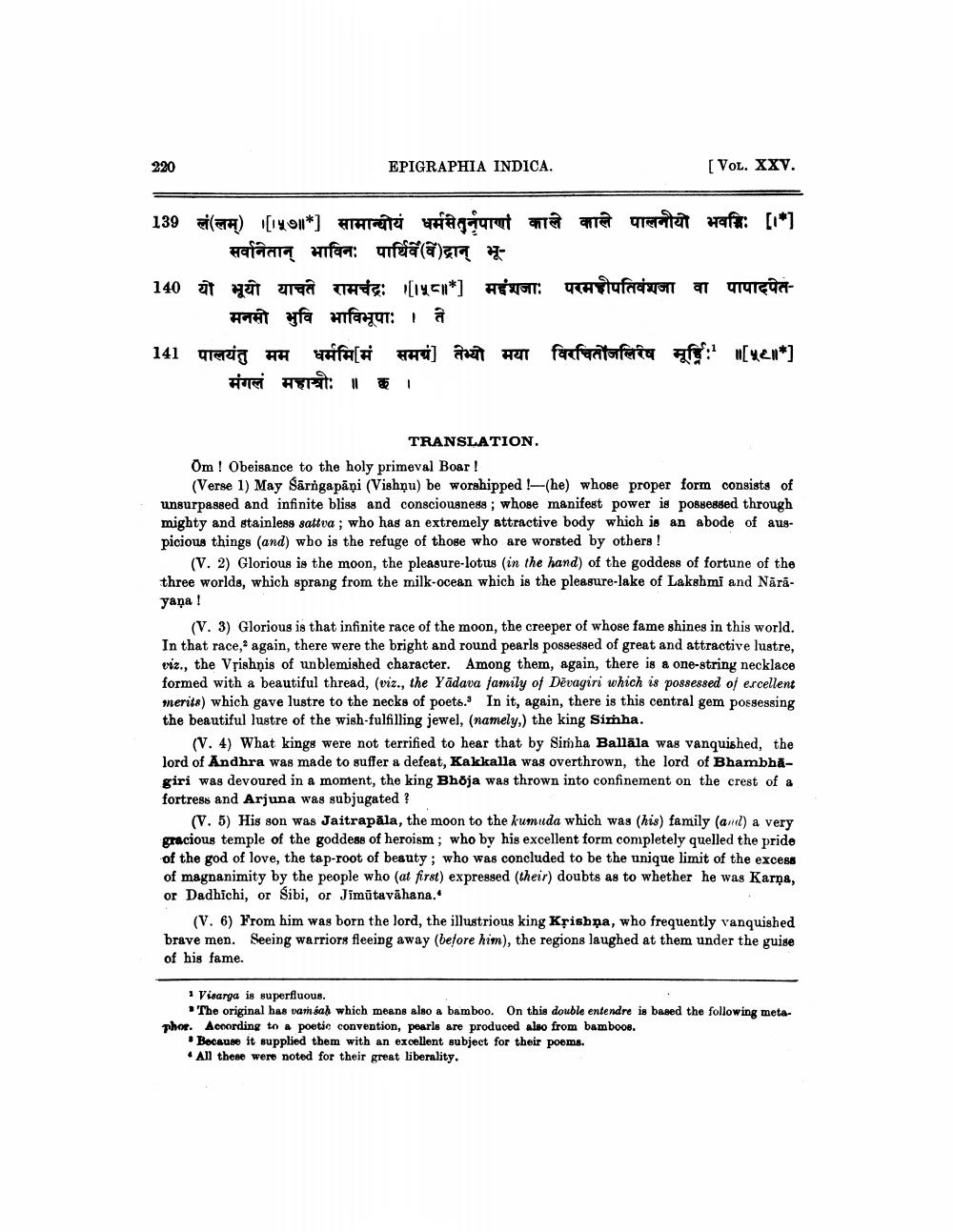________________
220
EPIGRAPHIA INDICA.
[Vol. XXV.
139 (TH) [1499*] Amhracitei waqaurant ante amet arratent wafa: [1*]
सर्वानेतान् भाविनः पार्थिवे ()द्रान् भू140 at 11h TW: [145#*] HEWA: uchytufaeien 97 Murcia
___ मनमो भुवि भाविभूपाः । ते 141 grazio HA W ACHHA] Auzit pen facrantonrentia afy:[yen*]
Herit:
TRANSLATION. Om ! Obeisance to the holy primeval Boar !
(Verse 1) May Sarngapāni (Vishnu) be worshipped !-(he) whose proper form consists of unsurpassed and infinite bliss and consciousness; whose manifest power is possessed through mighty and stainless sattva ; who has an extremely attractive body which is an abode of auspicious things (and) wbo is the refuge of those who are worsted by others!
(V. 2) Glorious is the moon, the pleasure-lotus in the hand) of the goddess of fortune of the three worlds, which sprang from the milk-ocean which is the pleasure-lake of Lakshmi and Nārāyaņa !
(V. 3) Glorious is that infinite race of the moon, the creeper of whose fame shines in this world. In that race, again, there were the bright and round pearls possessed of great and attractive lustre, viz., the Vpishộis of unblemished character. Among them, again, there is a one-string necklace formed with a beautiful thread, (viz., the Yādava family of Dēvagiri which is possessed of ercellent merits) which gave lustre to the necks of poets. In it, again, there is this central gem possessing the beautiful lustre of the wish-fulfilling jewel, (namely) the king Simha.
(V. 4) What kings were not terrified to hear that by Simha Ballāla was vanquished, the lord of Andhra was made to suffer a defeat, Kakkalla was overthrown, the lord of Bhambhagiri was devoured in a moment, the king Bhoja was thrown into confinement on the crest of a fortress and Arjuna was subjugated ?
(V. 5) His son was Jaitrapāla, the moon to the kumuda which was (his) family (anl) a very gracious temple of the goddess of heroism; who by his excellent form completely quelled the pride of the god of love, the tap-root of beauty; who was concluded to be the unique limit of the excess of magnanimity by the people who (at first) expressed (their) doubts as to whether he was Karna, or Dadhichi, or Sibi, or Jimõtavähana.
(V. 6) From him was born the lord, the illustrious king Krishna, who frequently vanquished brave men. Seeing warriors fleeing away (before him), the regions laughed at them under the guise of his fame.
· Visarga is superfluous.
. The original has vamsah which means also a bamboo. On this double entendre is based the following metaphor. According to a poetic convention, pearls are produced also from bamboos.
. Because it supplied them with an excellent subject for their poems. • All these were noted for their great liberality.




